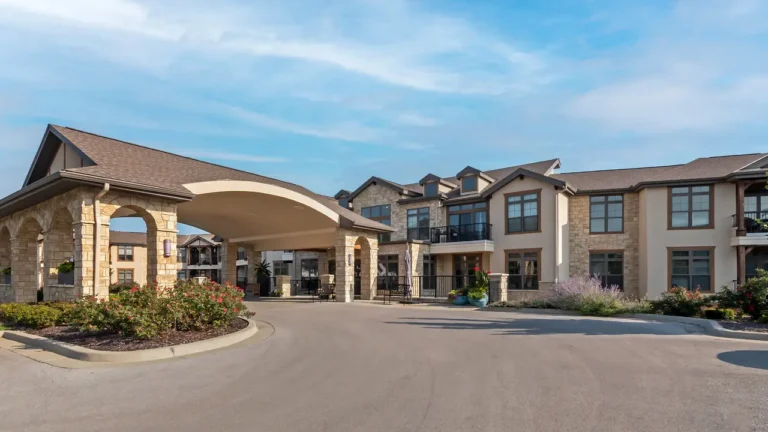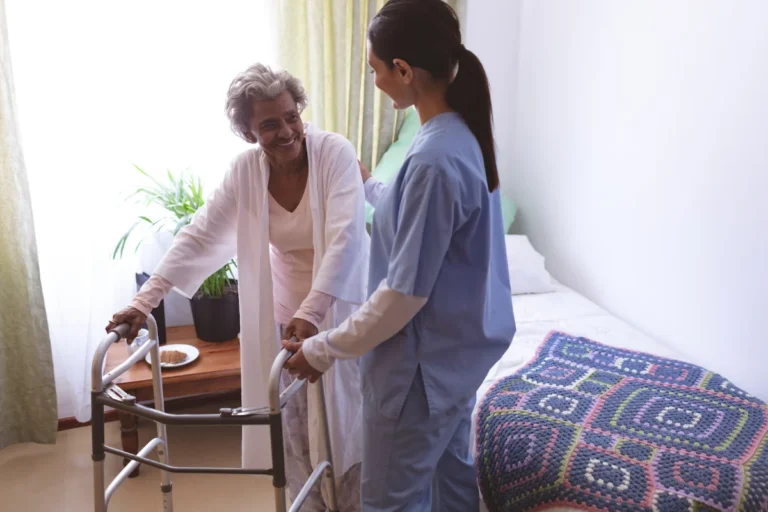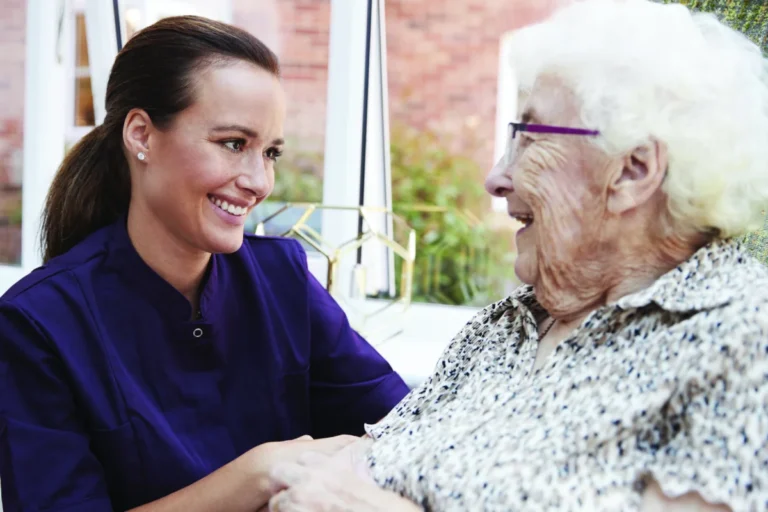According to the Alzheimer’s Association, 6.7 million Americans over the age of 65 are living with Alzheimer’s – a progressive neurological condition that causes cognitive decline, confusion and gradual loss of independence in seniors. Families who are unfamiliar with the disease struggle to cope with it. This is particularly difficult when the disease is not diagnosed or treated by a doctor.
Doctors diagnose Alzheimer’s by observing certain progressive symptoms and categorizing them into three main stages: mild, moderate and severe. Once the individual is diagnosed, doctors can prescribe medications and memory care programs to help slow disease progression, ensuring a satisfying daily life for your senior loved one.
It’s important to remember that Alzheimer’s affects every person differently, so while you may not always know what stage your loved one is in, just knowing the dementia stages, identifying the signs when they arise and being as proactive as possible can have a major impact on their condition.
Because we understand the overwhelming questions, emotions and expectations that come with a dementia diagnosis, we’re outlining the symptoms of each stage as well as shining a spotlight on resources that can help, like Thrive in the Courtyard Memory Care, in the sections that follow.
What Is Alzheimer’s?
Is Alzheimer’s genetic?
What causes Alzheimer’s?
While Alzheimer’s is the most common form of dementia, no one really knows what causes it or how to cure it. Scientists tend to believe genes, lifestyle and environmental factors could all play a role in the development of both early-onset and late-onset Alzheimer’s.
Early-onset Alzheimer’s cases affect only 10% of individuals, who experience symptoms in their 40s or 50s, as opposed to the age of 65 or older, which describes the latter and most common form of the disease.
Unless you have experienced it firsthand, you may occasionally wonder what the difference is between Alzheimer’sand dementia since people often use the two terms interchangeably. This can be confusing, but the terms themselves are not synonymous, per the breakdown below:
- Dementia is an umbrella term used to describe a progressive group of symptoms
- Alzheimer’s is a neurological disease; it is a type of dementia
When changes in the brain cause Alzheimer’s and then those changes progressively get worse, they lead to the following dementia symptoms in seniors:
- Memory loss
- Difficulty reasoning
- Difficulty solving problems
- Impaired speech
- Changes in personality
- Behavioral changes
Remember that Alzheimer’s gets progressively worse over time, and the severity of dementia symptoms varies from person to person. That’s why we have designed the progression below as a guide to assist you in your journey with Alzheimer’s disease, starting from detecting a slight cognitive decline in the mildest stage to assisting your loved one in tackling simple tasks in the most severe stage.
If you feel like any of the symptoms below could be a sign of Alzheimer’s in your loved one, schedule an appointment with their physician to discuss your concerns.
Stage 1: Preclinical Alzheimer’s
As we continue further, bear in mind that you may hear these stages referred to in different forms, like early, middle and late, etc. but they all encompass the same dementia symptoms. One thing to understand about Alzheimer’s is the disease itself often begins long before any symptoms become apparent – with changes in the brain occurring 10-15 years prior to diagnosis.
Known as preclinical Alzheimer’s, those with the disease are rather high functioning throughout this stage, acting independently despite the occasional memory lapse. To your loved one, this stage may feel like a bad case of déjà vu, with common difficulties including:
- Having a hard time finding the right word or name
- Remembering names during introductions
- Forgetting material you may have recently read
- Losing/misplacing important objects
- Difficulties with planning or organizing
Stage 2: Moderate Alzheimer’s
Mild cognitive impairment (MCI) is often the first obvious sign of Alzheimer’s, and it becomes most evident in the moderate/middle stage. At this stage, individuals experience a noticeable increase in mild forgetfulness and cognitive decline, which can no longer be dismissed as age-related forgetfulness – a common occurrence in the preclinical stage.
Typically, this is the longest stage and could last for many years. Your loved one will require a greater level of care than before as they’ll begin to have trouble completing daily living tasks, but participation in activities is still possible.
Because of the increase in mood swings and changes to your loved one’s personality and behavior, the following is likely to occur. When they do, you should seek out a possible health assessment as doctors commonly diagnose the disease during this stage:
- Significant cognitive struggles lead to feelings of anxiety and frustration
- Signs and symptoms become apparent to doctors and loved ones
- Severe memory loss
- Propensity to wander
- Forgetful of personal history
- Moody/withdrawn
- Confusion on where they are, what day it is or who they may be talking to
- Clear changes in personality or behavior
- Difficulty with language
- Difficulty recognizing or remembering loved ones
As the need for imminent personal care looms, senior living communities like The Laurel at Norterre are a wonderful consideration for families as they offer seniors living with Alzheimer’s/dementia ample opportunities to enjoy more fulfilling days.
This stage can pose unique challenges for family members as they work to navigate dementia symptoms in addition to their loved one’s changing behaviors. However, via compassionate memory care (which we will discuss in more detail a little later), seniors relish a life of purpose filled with more good days while their loved ones delight in daily peace of mind.
Stage 3: Severe Alzheimer’s
During this most severe stage of Alzheimer’s, symptoms become profound, affecting all areas of daily life including trouble communicating and a major loss in memory. Largely dependent on caregiver assistance, key characteristics of this stage include:
- 24-hour personal care
- Loss of spatial awareness
- Changes in physical ability, such as walking, sitting and swallowing
- Limited speech
- Possible incontinence
Care during this time becomes incredibly demanding, physically and emotionally, which is why individualized care can go a long way in managing this debilitating disease in the best possible way.
Treating Alzheimer’s With Thrive in the Courtyard Memory Care
Alzheimer’s is a progressive disease that currently lacks a cure, meaning once dementia symptoms show, they’re eventually going to get worse, making the need to affirm your loved one’s dignity with respect and comfort that much more important. This begins with ensuring they feel independent by maintaining their existing skills anchored in their life history – a program for the whole person that we like to call Thrive in the Courtyard Memory Care.
Enhanced by 24/7 professional staffing and specialized dementia caregivers, the care your loved one receives in our compassionate memory care neighborhood includes the following:
- Personalized care (since everyone’s journey is different)
- Unique calendar of therapies
- Close collaboration with family to create moments that matter
- Delicious and nutritious dining
Alzheimer’s disease is an arduous journey that no family should have to navigate – marked by stages of cognitive decline and dependency – but your loved one can still enjoy a life of purpose living with Alzheimer’s/dementia, especially if you start treatments and medication early. Just remember that while certain medications and treatments help, management is the best medicine.
Hopefully, we’ve provided the information you need to understand Alzheimer’s progression so that if your loved one ever displays signs, you’ll be able to confidently address them – taking the necessary action to slow symptoms and successfully support your senior loved one.
About Tutera Senior Living & Health Care
At Tutera Senior Living & Health Care, we’re committed to providing seniors with quality care that supports their emotional, intellectual and physical well-being. Using individualized care plans, empowering wellness programming and clinical excellence, we’re able to restore the quality of life for many seniors.
Interested in learning more about Tutera Senior Living? You can use our community finder tool to locate a community near you or call us today with any questions.







